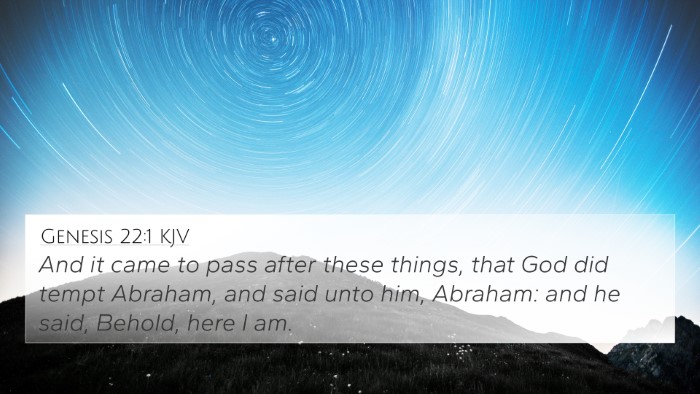John 6:6 Meaning and Interpretation
John 6:6 states, "And this he said to test him, for he himself knew what he would do." This verse is part of the narrative where Jesus performs the miracle of feeding the 5,000. The context reflects a significant moment in Jesus' ministry, particularly focusing on the faith and understanding of His disciples.
The commentary from Matthew Henry emphasizes that Jesus was aware of His plans and used this situation as an opportunity to test Philip's faith. Philip’s response demonstrates a lack of understanding of who Jesus truly is and what He is capable of doing. By questioning how they could feed such a multitude, Philip reveals the limitations of human perspective.
Albert Barnes notes that this test was not just for Philip, but for all the disciples. It highlights their dependence on Christ and His divine ability to provide. The test aimed to deepen their faith and awareness of Christ's power, fostering growth in their spiritual journey.
In the view of Adam Clarke, the verse reflects the omniscience of Christ. By stating that "he himself knew what he would do," it reinforces the idea that Jesus had a plan that transcended human understanding. Clarke also draws attention to the teaching moment this presented for the disciples, emphasizing that faith should persist even in the face of seemingly impossible circumstances.
Bible Cross-References
- Matthew 14:17 - "We have here but five loaves, and two fishes." – The disciples’ limited resources.
- Mark 6:37 - "Give ye them to eat." – Jesus' command challenges their perception of scarcity.
- Luke 9:13 - "For we have no more than five loaves and two fishes." – Similar recounting of the event inspiring faith.
- Philippians 4:19 - "But my God shall supply all your need according to his riches." – Assurance of divine provision.
- John 6:11 - "And Jesus took the loaves; and when he had given thanks, he distributed to the disciples." – The act of thanksgiving highlighting gratitude amidst needs.
- Exodus 16:4 - "Then said the Lord unto Moses, Behold, I will rain bread from heaven for you." – God's provision in the wilderness as a parallel to Jesus’ feeding miracle.
- Isaiah 55:2 - "Wherefore do ye spend money for that which is not bread?" – A spiritual hunger that parallels physical needs.
- 2 Corinthians 9:8 - "And God is able to make all grace abound toward you." – God’s capacity to provide goes beyond material needs.
- John 14:14 - "If ye shall ask any thing in my name, I will do it." – The powerful promise of Jesus in relation to our needs.
- Matthew 6:34 - "Take therefore no thought for the morrow..." – Teaching on reliance on God for daily provisions.
Thematic Connections
The thematic connections of John 6:6 with these verses illustrate the overarching principle of God’s provision for His people. The narrative signifies a turning point for the disciples, marked by the realization that Jesus is not bound by worldly constraints and exemplifies the need for faith despite visible limitations.
Understanding Jesus’ Testing
The notion of Jesus testing His disciples also resonates with various scriptural instances. For instance, the Israelites’ testing in the wilderness and subsequent provision emphasizes that testing leads to growth and reliance on God’s faithfulness. Such connections resonate within the broader biblical framework of faith, reliance, and divine capability.
In conclusion, understanding John 6:6 through the lens of public domain commentaries, we see a rich tapestry of faith, testing, and provision. For those studying this verse and seeking connections with other scriptures, the cross-references provide a robust framework for deeper exploration.








